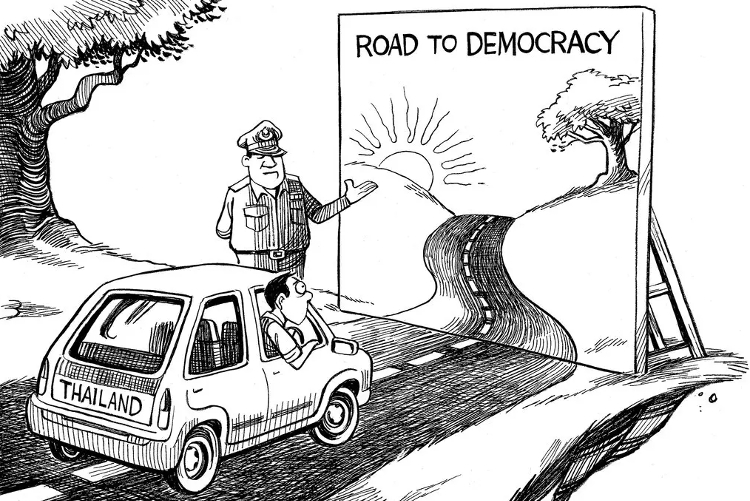
Prime Minister Prayut has asked the King to authorise the cessation of martial law. The law has been in place since 20th May last year, when Prayut imposed it unilaterally. At the time, Prayut told the public that “[t]he invocation of martial law is not a coup d’etat”, though two days later he launched a full-scale coup. Prayut’s declaration of nationwide martial law was unconstitutional, as a royal decree was not issued and the constitution authorised the military to declare martial law only “in a certain locality as a matter of urgency” (article 188).
Yesterday, Prayut announced that he was ready to exercise his authority according to article 44 of the interim constitution: “We have prepared article 44 and will use it soon”. Article 44 states: “NCPO Announcements and Orders... shall be all deemed lawful, constitutional and final”. The withdrawal of martial law is therefore largely symbolic, as the interim constitution gives Prayut the power to act without any checks or balances.
Former politicians are becoming increasingly vocal in challenging some of the junta’s actions, and the Pheu Thai and Democrat opposition parties are both calling for a referendum on the next constitution. (A referendum was held in 2007, though this time the junta has made no such commitment.) In a 9th March interview with the Bangkok Post, former PM Abhisit Vejjajiva directly criticised a proposal to enable the PM to dissolve parliament if it rejected a government bill: “This is a step backward for democracy. It will snatch democracy away from the people”.
The Thai political situation was effectively summarised in a cartoon by Heng Kim Song published in the International New York Times on 2nd March. Thailand is depicted as a car heading for a metaphorical cliff, and the military’s promise of the sunlit uplands of democracy is presented as a deceptive illusion.
Yesterday, Prayut announced that he was ready to exercise his authority according to article 44 of the interim constitution: “We have prepared article 44 and will use it soon”. Article 44 states: “NCPO Announcements and Orders... shall be all deemed lawful, constitutional and final”. The withdrawal of martial law is therefore largely symbolic, as the interim constitution gives Prayut the power to act without any checks or balances.
Former politicians are becoming increasingly vocal in challenging some of the junta’s actions, and the Pheu Thai and Democrat opposition parties are both calling for a referendum on the next constitution. (A referendum was held in 2007, though this time the junta has made no such commitment.) In a 9th March interview with the Bangkok Post, former PM Abhisit Vejjajiva directly criticised a proposal to enable the PM to dissolve parliament if it rejected a government bill: “This is a step backward for democracy. It will snatch democracy away from the people”.
The Thai political situation was effectively summarised in a cartoon by Heng Kim Song published in the International New York Times on 2nd March. Thailand is depicted as a car heading for a metaphorical cliff, and the military’s promise of the sunlit uplands of democracy is presented as a deceptive illusion.

